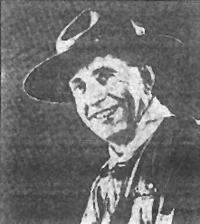Thomas Corbett, 2nd Baron Rowallan
|
The Right Honourable The Lord Rowallan KT, KBE, MC, TD |
|
|---|---|
 |
|
| 18th Governor of Tasmania | |
|
In office 21 October 1959 – 25 March 1963 |
|
| Monarch | Queen Elizabeth II |
| Premier | Eric Reece (1959–63) |
| Preceded by | Sir Ronald Cross |
| Succeeded by | Sir Charles Gairdner |
| Personal details | |
| Born |
19 December 1895 Chelsea, London |
| Died | 30 November 1977 (aged 81) Rowallan Castle, Kilmarnock |
| Nationality | British |
| Spouse(s) | Gwyn Mervyn Grimond |
| Awards |
Knight of the Order of the Thistle Knight Commander of the Order of the British Empire Military Cross Territorial Decoration |
| Military service | |
| Allegiance |
|
| Service/branch | British Army |
| Years of service | 1914–1918 1939–1944 |
| Rank | Lieutenant Colonel |
| Battles/wars | |
Thomas Godfrey Polson Corbett, 2nd Baron Rowallan KT, KBE, MC, TD (19 December 1895 – 30 November 1977), had a distinguished military career, and was Chief Scout of the British Commonwealth and Empire and Governor of Tasmania.
The first son of Archibald Corbett, the liberal politician and property developer and Alice Mary, the daughter of John Polson, a corn merchant, Thomas Corbett was born in Chelsea, London, on 19 December 1895 and was brought up in London and on the family’s Scottish estates. Known as "Billy" to the family, he was educated at Gibbs School in Sloane Street, London, Wellington House Preparatory School in Westgate-on-Sea and Eton College.
Thomas Corbett was 18 when the First World War broke out; he secured a Commission in the Ayrshire Yeomanry and went with them to Gallipoli in October 1915. The Ayrshires were amongst the last troops to be evacuated and went from there to Egypt, forming part of the cavalry reserve in the Second Battle of Gaza. He then transferred to the Grenadier Guards; after re-training he was sent to the Western Front in March 1918, joining the 1st Battalion at Mercatel as a Lieutenant. This coincided with the German Spring Offensive (Operation Michael), and the battalion was soon in action. At Boyelles on 30 March 1918, Corbett attempted to dig out some wounded soldiers who had been buried by artillery, while "under heavy fire and in full view of the enemy" and was awarded the Military Cross but received a leg wound which left him with a permanent disability.
...
Wikipedia
